Just months ago, it seemed, the internal combustion engine was on its way out, with regulators planning to phase out the technology – in some markets, like Europe, within barely a decade. While automakers once seemed ready to go along they’re now beginning to push back. That includes BMW’s CEO who called for a “correction” of EV-only strategies at this week’s Paris Motor Show.
When European regulators passed a ban on internal combustion engines in March 2023 it seems inevitable that would set off a domino effect worldwide, eventually leading to similar measures in China, Japan and even the United States. After all, with rare exception, the industry seemed ready to go along, from mainstream manufacturers like General Motors to exotics such as Aston Martin and Bentley.
Suddenly, there’s pushback, as became readily apparent during this week’s Paris Motor Show. Several carmakers suggested they’ll back off from their own EV-only strategies, including Stellantis brand Alfa Romeo. Others called on lawmakers to rethink such bans.
BMW warns of a “massing shrinking” of the industry
Speaking in Paris, the German maker’s CEO Oliver Zipse painted a dire picture as he called for a “correction” of the European Union ban on internal combustion engines – which he termed “no longer realistic.” While the automaker might have accepted that approach initially, said Zipse, “with today’s assumptions, (the regulations will) lead to a massive shrinking of the industry as a whole.”
Zipse cited a number of reasons for his concern, including changes in attitude among consumers who now appear to be less supportive of giving up their gas and diesel vehicles.
He also raised the specter of China which increasingly has become the bogeyman feared by politicians and automakers alike. In comments first quoted by Reuters, said that backing off on the EUs 2035 ban “would…afford European OEMs less reliance on China for batteries,”
Chinese EV makers gain ground
What Zipse didn’t point out was just how rapidly Chinese automakers have grown sales as they position themselves to take advantage of ICE bans in Europe and other markets.
Proponents insist that consumers will increasingly come to embrace battery-electric vehicles, and they note that global EV sales were up 30.5% in September, according to market research firm Rho Motion. In the EU, demand continues to vary widely from one member nation to another, but in Norway better than nine out of 10 new vehicles are battery powered.
Chinese brands such as BYD, Chery and Geely have been capturing a disproportionate share of the electric vehicle market there. And while European regulators have enacted a 45% tariff on Chinese EV imports, those three brands are among the many who plan to respond by setting up their own manufacturing plants in the EU.
More EV News
- EVs Set Global Sales Record in September
- Ford Revises EV Plans, Dumps 3-Row SUV, Delays Next-Gen Pickup
- First Drive: 2024 Chevrolet Equinox EV — An Affordable, Long Range Option
Automakers extend plans for ICE technology
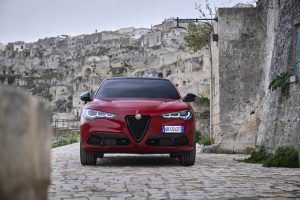
While Alfa Romeo has new EVs coming, its outgoing CEO expects his successor to continue developing gas models.
A growing number of automakers appear to be resisting calls to go EV-only. At the Paris Motor Show, outgoing Alfa Romeo CEO Jean-Philippe Imparato suggested the Italian marque likely will continue producing internal combustion engines, despite his earlier decision to phase out the technology.
He told Britain’s Auto Express that his annointed successor, Santo Ficili, “has the flex” to keep producing gas-powered models if buyers don’t show the love for the battery-electric models the brand is now in the process of rolling out. Alfa’s sibling brand Dodge appears to be following a similar strategy. It delivered a shock earlier this year when it debuted its all-electric Challenger Daytona muscle car, revealing that it had also developed a gas-powered version.
Other manufacturers are expanding their options. Mercedes-Benz is one of several to announce new ICE development programs. Others, such as General Motors, are covering bases by adding plug-in hybrids to their product programs, at least for the near to mid-term.
I told you so
While most manufacturers appeared to fall in line as bans on internal combustion technology were announced, there were a handful warning against such a strategy. The most notable was Toyota, its former CEO Akio Toyoda insisting a full-on switch to EVs would seriously damage the industry.
Toyota continues to hold to a mixed powertrain strategy that includes not only EVs but hybrids, plug-in hybrids and even fuel-cell vehicles. And others, like the Hyundai Motor Group, appear ready to embrace a similar approach.
Regulators rethink their strategies

President Joe Biden quadrupled duties on Chinese-made EVs. But his administration also slowed the mandated switch to EVs.
For its part, Porsche has begun rolling out an array of EVs, including a new version of the Macan. But it appears to be looking for regulators to back down on ICE bans. Back in January, Chief Financial Officer Lutz Meschke said in Singapore that while “There’s a lot of discussions right now around the end of the combustion engine….I think it (the EU ban) could be delayed.”
Indeed, Germany is one of the EU member states that appears to be ready to call for a delay in, even the elimination of, the region’s ban on internal combustion engines set to take effect in 2035. And similar moves could follow elsewhere. The United Kingdom already pushed back its own phase-out from 2030 to 2035.
In the U.S., meanwhile, the Biden administration earlier this year eased up on its own clean air rules, effectively slowing the requisite adoption of EVs through early in the coming decade. And, even then, it gave the industry the option of reducing their 2032 quotas by boosting sales of plug-in hybrids, instead.

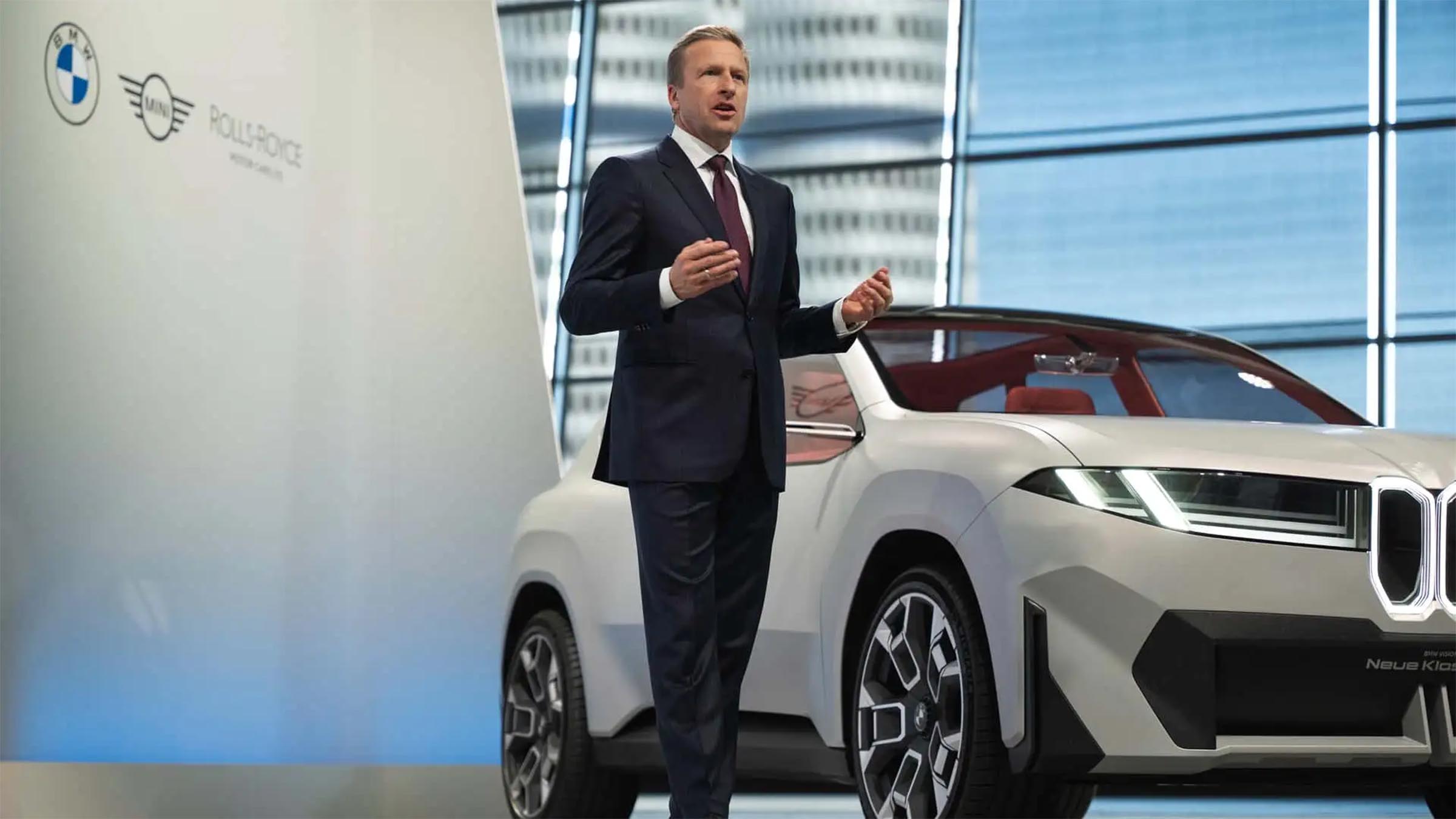
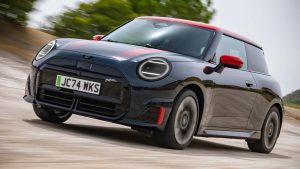
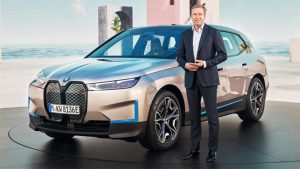
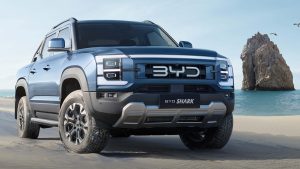
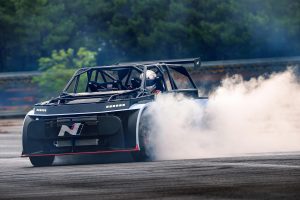
Just a couple of years ago the manufacturers themselves were rushing to tell everyone just how fast they would become an “all electric” brand. 2035! 2030! 2025! How times have changed… Indeed the decision to dump almost all ICE vehicles may have killed Jaguar, it seems.